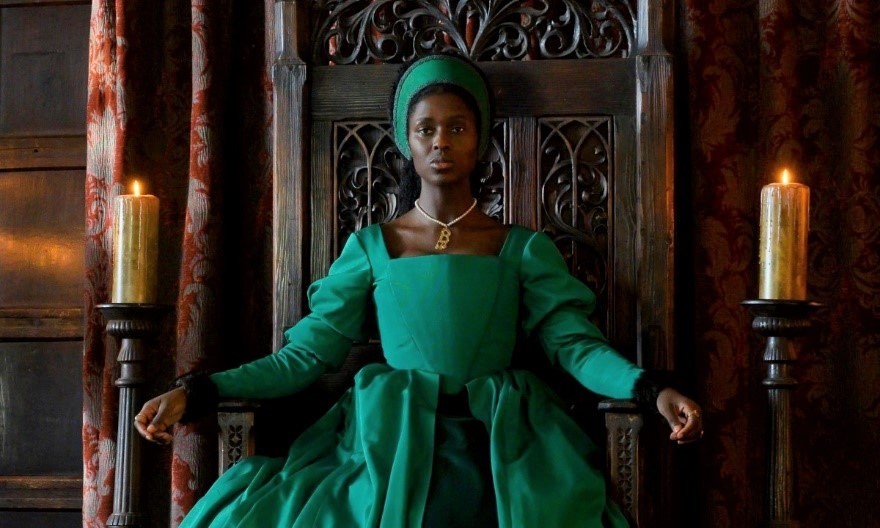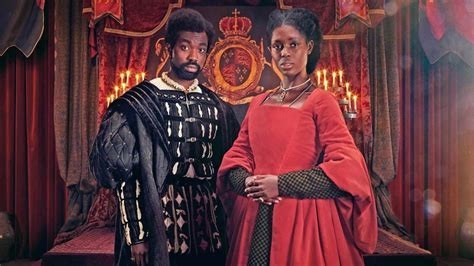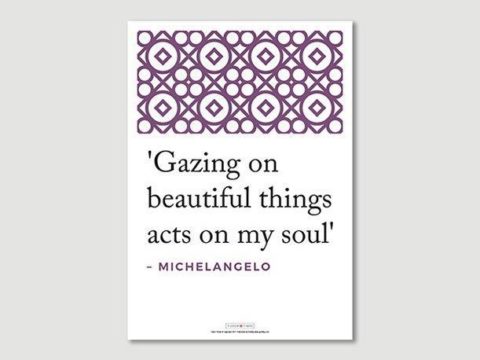Anne Boleyn on Channel 5 (A Review)

Just as every generation has its own interpretation of the legend of King Arthur, so too, does every generation have its own Anne Boleyn. In the last twenty years or so, Anne has become a symbol for the empowered woman, the woman who won’t conform to social or cultural norms, the woman who strives for power on her own terms. How close that is to the real sixteenth century queen is something we can never know. Although glimpses of her personality can be detected in contemporary writings, so much is second hand, and distorted by the religious, political, and cultural milieu of the recorder, that we cannot really see her.
Nevertheless, I have never seen a more mesmerising performance of our perceptions of Anne Boleyn than that delivered by Jodie Turner Smith in Channel 5’s new, three-part series. Anne’s mercurial nature, her talent for making herself disliked and her delusion that her power stemmed from anything beyond Henry’s will are brilliantly portrayed. Her desire to use the wealth of the monasteries for some wider societal gain, not just to line Henry’s pockets, and her promotion of the English bible to benefit the masses was clear, but so was her utter determination to exercise her power.
What worked well for me was the use of real events to illustrate Anne’s character, but not to make a hard and fast judgement of her. For example, she really did offer to be a second mother to Mary, following the death of Katharine of Aragon – aware that alienating Henry from his daughter was not a good-long term strategy. We do not know what went on in the real Anne’s head and this scene remained open to two interpretations – that she meant well but was completely tone-deaf to the pain that her message would cause, or that she was deliberately insulting Mary in a way that Henry would not see.
I also liked the way that things were hinted, rather than spelt out – the conversation at the card table when it become apparent that Anne’s cousin, Madge Shelton, has been ‘servicing’ Henry during Anne’s pregnancy at Anne’s own behest reveals layer upon layer of court politics, as does Anne’s command to Jane Seymour to read from the bible. The selection of verses is brilliant. We are in no doubt that Anne is warning Jane to avoid Henry. The use of animals was clever – showing that Henry and Anne both sought to bend the world around them to their will, but that his level of power and control was far greater than hers. Although Henry gave in to her demand that the annoying peacocks be dispatched, he clearly agreed only because he did not wish to upset her whilst pregnant, and, in fact, it becomes apparent that nobody will obey her orders if the king does not directly command it, whilst the death of the horse illustrates that he does have power of life and death. She is nothing without him, and that becomes blindingly obvious to her when he is unconscious.
We are left wondering about Anne’s true feelings for her husband, which is something historians have debated for centuries – did she share his passion, or was she in it for the power? The complex nature of the relationship was subtly illustrated – that Henry had had an overwhelming physical passion for Anne can never be doubted, but that her hold over him was waning soon becomes apparent. His reaction to her attempts to comfort him after his serious injury ring true – many strong men struggle to accept sympathy.
There were a couple of scenes where Tudor aficionados might have felt the irony of Anne’s position. Contemporary evidence records a game of cards between Anne and her predecessor, Katharine of Aragon. Anne had drawn a king, and Katharine remarked that unlike the others, she would ‘have all or none’. This is similar to the game played with Jane. The final scene, where Henry leaves Anne without a farewell, is a carbon copy of his abandonment of Katharine without a word of goodbye.
My one complaint about the programme would be the statement at the beginning that Anne has five and a half months to live. Anyone who knows the history will be aware of this and anyone watching it without prior knowledge will lose some of the build-up of tension.
There has been some discussion about the casting of a woman of colour as Anne Boleyn, but at no time did this feel in anyway contrived or done to provoke controversy. The casting of another actor of colour as her beloved brother, George, perhaps subtly emphasises how the two of them were allies against the world. Historiography and literature have often cast them as outsiders, although as the grandchildren of the duke of Norfolk, they were at the heart of the Tudor court, even before Henry’s fancy fell on Anne. Anne had an indefinable quality that drew both admiration and hatred - that star quality is reflected brilliantly by Turner Smith. All eyes are drawn to her in every scene. She is a superb actress, and I am sure will define the role for years to come.

